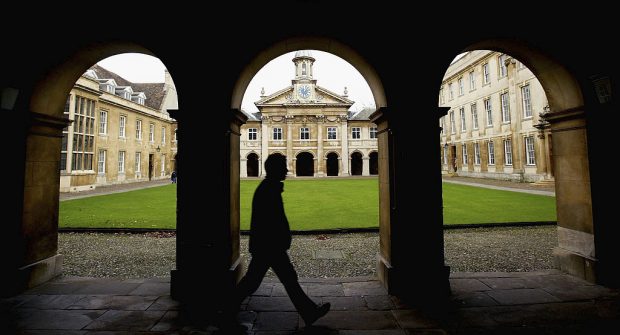As a former student of English at Cambridge, I am sent the faculty magazine, 9 West Road. Its latest issue leads with a long article by Peter de Bolla, chair of the faculty, headlined — with intentionally bitter irony — ‘Now we are in control’. On and on he goes — the shocked perplexity of ‘French locals’ in ‘our holiday village’ that we could be Brexiting, the putative loss of the EU exchange students who ‘amaze and challenge’ him, how you cannot study for the tripos’ famous Tragedy paper ‘from the perspective of a monocultural and inwardly facing society or polis’. Prof. de Bolla himself is so monocultural and inward-facing that he cannot imagine any way of running international exchanges without the EU. The real burden of his article, however, is money. Stupefying sums — an ‘annual inflow of grants from EU sources’ of ‘at least €45 million’ — come Cambridge’s way and are set out in bewildering detail. An EU initiative called Horizon 2020 amounted to £98,543,527 ‘as of February 2016’, etc. Now the university is going to lose it, he thinks. It never crosses his mind that it might corrupt academic independence to worship the source of your money so uncritically. He does not let himself be ‘amazed and challenged’ by the wider arguments which persuaded millions — even some Cambridge English graduates — to vote Leave. Cambridge University was 800 years old in 2009. Except for the last 40 years, it managed without grants from Brussels. It can find a creative way through this, if it wants to.
This is an extract from Charles Moore’s ‘The Spectator’s Notes’, which first appeared in this week’s magazine







Comments